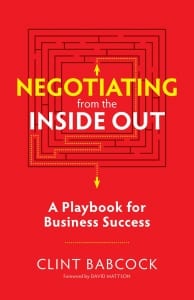Top 5 Reasons Why Your Credit Score Matters

1. It Affects the Loans You Qualify For
If you’re planning on applying for a major loan soon, you should be aware that having poor credit could disqualify you for certain loans. In some scenarios, you may be able to qualify but could get stuck with higher interest rates and worse repayment terms than if you had a higher score. For example, if you’re planning to purchase a home in the near future and will need to apply for a mortgage, your credit score may affect such factors as how much of a mortgage you’ll be able to take out and the interest rate for paying it back. This could potentially add up to paying tens of thousands of dollars more over the years, so improving your score before applying could potentially save you a significant amount of money in the long run.
2. It Could Affect Which Apartments You Can Rent
Even if you’re not planning to purchase a home, having a less-than-ideal credit score can affect the apartments you may be able to rent. Many landlords require a credit check before agreeing to lease their property, and some many use it as a way to filter out possible tenants and decide to whom they want to give the rental contract. Besides potentially keeping you out of a place you wanted, a poor credit score could also result in being asked for higher up-front rental deposits, again costing you more money than if you had a higher score.
3. It Could Impact Your Insurance
It may surprise you to learn that your credit score can actually affect your insurance costs. Insurers will sometimes use credit checks as a way of figuring out how much to charge since they use it as a measure of risk. A poor score could mean higher rates, which could potentially translate to hundreds more in costs per year.
4. It Could Prevent You From Getting a Better Phone Plan
Another unexpected way your credit score can impact your everyday life is that a poor score could keep you from getting a better phone plan. Mobile deals advertised on television, for instance, usually require credit scores above a certain threshold in order to qualify. A bad score could mean you won’t be able to get a better deal. Additionally, some carriers won’t grant you a contract at all, instead leaving you with only a pay-as-you-go option.
5. It Could Keep You From Getting a Car
Finally, if you don’t have good credit, you may find it difficult to finance a car. Auto loan rates often depend on a credit check, which means a better score can translate into access to the car loan you want. Without good credit, you may not be able to afford the vehicle you have your eye on.
Whether you’re planning to purchase a home and need a mortgage or just want to qualify for better car insurance rates, having a good credit score can make a big difference in your everyday life. While it can be easy for your credit score to slip through the cracks when you have other things on your plate, keeping up with your score and trying to improve it over time can help open new opportunities to you. If you’re trying to sort out your finances and boost your score, keep these important facts in mind and you’ll be well on your way to a stronger financial future before you know it.





